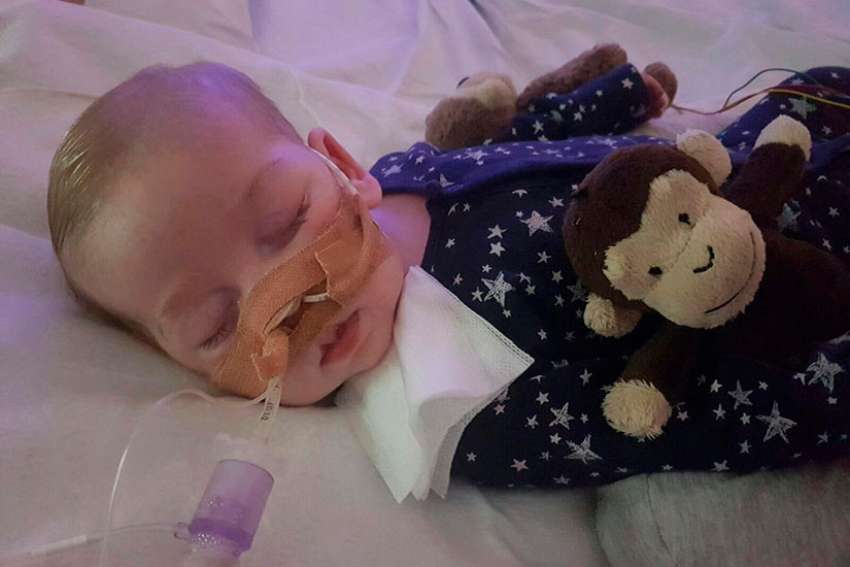“We just passed amendment that grants permanent resident status to #CharlieGard and family so Charlie can get the medical treatment he needs,” Rep. Jeff Fortenberry (R-Neb.) said in a July 18 tweet.
The amendment was passed after Republican congressmen Trent Franks and Brad Wenstrup proposed legislation in favour of an additional treatment for Charlie, who suffers from a rare mitochondrial disease which paralyzes muscles and causes brain damage.
“Congressman Bradwenstrup and I have proposed legislation to grant lawful permanent status in the U.S. to Charlie Gard and his family, so they can at least pursue their best hope for Charlie,” Rep. Franks told Fox News July 11.
Charlie Gard has made headlines over the past few months as U.K. courts denied his parents the right to transfer him to other hospitals for treatment. The Gard family appealed to the EU court and was denied a hearing.
Claiming that prolonging Charlie's life would cause unnecessary suffering, British judges had ruled that London's Great Ormond Hospital could remove life support without the consent of the parents. The hospital granted Charlie an extension on life support so his parents may have a few more moments with him.
During the extension, a team of seven medical experts told the hospital that unpublished data on an experimental drug suggest a treatment which may improve the condition of Charlie’s brain. One of the experts is a neurologist and a researcher located at the Bambino Gesu Hospital in Rome – a Vatican hospital who's request to transfer Charlie to their facility was also recently denied.
Additionally, a U.S. specialist in mitochondrial diseases speculated in a video last Thursday that the experimental treatment, nucleoside therapy, has a success rate of at least 10 percent and a potential high of 56 percent.
Since experts have submitted new data that advocates for Charlie’s possible recovery, the Great Ormond Hospital has asked the courts to reopen the baby’s case that Charlie be transferred to the U.S. for nucleoside therapy, which his parents have successfully fundraised over $1 million for.
The most recent court decision from London is allowing a U.S. doctor to go to England to examine Charlie. Dr. Michio Hirano of Columbia University, a neurologist, visited the baby July 17 along with a second unidentified doctor.
Charlie was diagnosed with Mitochondrial Depletion Syndrome – a fatal disease which progressively weakens the muscles and causes brain damage. The genetic disease is very rare, and Charlie is thought to be only one out of 16 people in the world diagnosed with the disease.
Despite Charlie’s low potential for survival, his parents have received U.S. and Vatican support for their right to fight for his life.
A statement was issued July 2 on behalf of Pope Francis, saying that the pontiff “prays for them, wishing that their desire to accompany and care for their own child to the end will be respected.”


